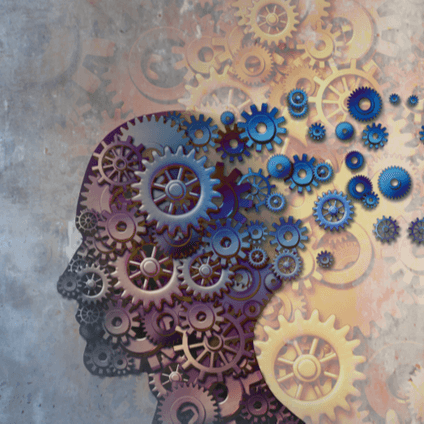Neurodivergent challenges in the workplace
Around 15% of the UK population is thought to be neurodivergent, i.e., their thinking works differently to what society expects. This term refers to people with autism, ADHD, dyslexia, dyspraxia, dyscalculia, Tourette’s syndrome, or chronic mental health conditions, such as bipolar disorder and schizophrenia.
Promoting neurodiversity and inclusion has proven business benefits, and it’s an employer’s responsibility to provide a workplace where the wellbeing of all employees is considered and accommodated.
Everyone has their strengths and weaknesses, but the needs of neurodivergent people might differ from those of neurotypical individuals and can often be overlooked. Tasks that seem easy to others may be a struggle for neurodivergent people. Conversely, their strengths might far surpass those of neurotypical people.
Challenges neurodivergent people face usually relate to communication and professional relationships. For example, people with ADHD can struggle to stay focused in meetings or take longer to process information. And people with dyslexia may struggle with written communication and could misunderstand instructions written in emails. There are also many people who are unable to communicate with spoken words, such as non-verbal autistic people, those who are physically mute, or deaf people who find it difficult to speak aloud.
AI as a reasonable adjustment
Just as you would add a ramp to your workplace for disabled people to allow equal access to a physical building, employers must also make reasonable adjustments for neurodivergent people to have an equal chance of navigating neurotypical workplaces.
Employers with outdated systems may not be utilising technology that could vastly improve their workforce’s productivity.
Artificial intelligence (AI) has developed a lot in recent years, to the point where it is all around us. Today, it exists on almost every new phone, computer, and TV. AI already in use in the workplace includes:
Facial recognition for security
Text-to-speech software in word processors and browsers
Dictation software and voice assistants such as Alexa, Siri and Google Assistant
Scheduling assistants within most digital calendars and to-do lists
Automated workflows
ChatGPT and other chatbots
Automatic transcription, and closed caption creation
Google Lens automatic translation and image searching
For most people, AI is simply an extra convenience, but much of it is proving essential to people with certain disabilities or neurological differences to help them complete their work to a similar standard as neurotypical people – i.e., those whose minds work as society expects.
Most AI is free and easy to implement into workplace systems and just requires employers to unblock the technology or allow its installation for those who need it. It would also create a more inclusive standard working practice to normalise the use of such tech in all meetings and other forms of communication.
Normalising digital accessibility
Making it standard practice to use certain accessibility tools, like autogenerated closed captions on video communications, for example, is a small way to show consideration for those with invisible disabilities and neurological difference. They don’t take much effort, but can have a hugely positive impact on individual employees.
Another way might be regularly recording meetings and allowing participants to access AI generated transcripts. Other tools that should be encouraged include text-to-speech AI software on webpages or on-screen text. This can also be useful for face-to-face communication between colleagues, where one person struggles to communicate aloud.
Normalising these processes could be a game changer for those who need them but feel uncomfortable asking, especially if they are the only one who needs the accommodation. Neurological difference is still not widely understood, and those in need of these adjustments won’t necessarily know they need them until they use them and see a positive difference.
Those who struggle with written communication can integrate software like Grammarly into their systems and use voice assistants to help them complete certain tasks. We use these tools every day, but some employers may not provide them on company computers. External websites and browser add-ons like these tend to be blocked for security reasons within companies, but employers should consider allowing accessibility, where possible, for those who need it.
The future of AI systems at work
AI is already revolutionising the workplace for those who need additional support to unlock their most productive selves, and ongoing technological developments will soon see AI further integrated into our everyday working lives.
There has been a huge buzz around the latest piece of AI, ChatGPT, a chatbot that uses machine learning and data from across the internet, to answer users’ questions as if it were a real person. Microsoft has recently bought Open AI, the platform that developed the technology, and has plans to introduce a new AI assistant, 'Copilot' which would integrate into all its existing products. Instead of writing code to command it to complete tasks, users will be able to make requests in plain English.
There will always be a need for professionals in any industry. All the way back to the printing press or the production line, professionals feared technology would make us redundant. However, the technology we have developed so far has only led humans to advance. It has removed the burden of monotonous tasks to allow us instead to take on more creative, innovative, and interesting work.
Final thoughts…
As Reed has found since implementing our digital workplace systems, promoting the use of technology such as AI into a business inspires greater productivity and morale among employees. Those with invisible disabilities and neurological differences will feel especially grateful to employers for creating a supportive and inclusive environment where using AI is encouraged and assistive technology is normalised and available to all who might need it.
To find a talented professional to join your company, or take the next step in your career, contact your nearest Reed office.




